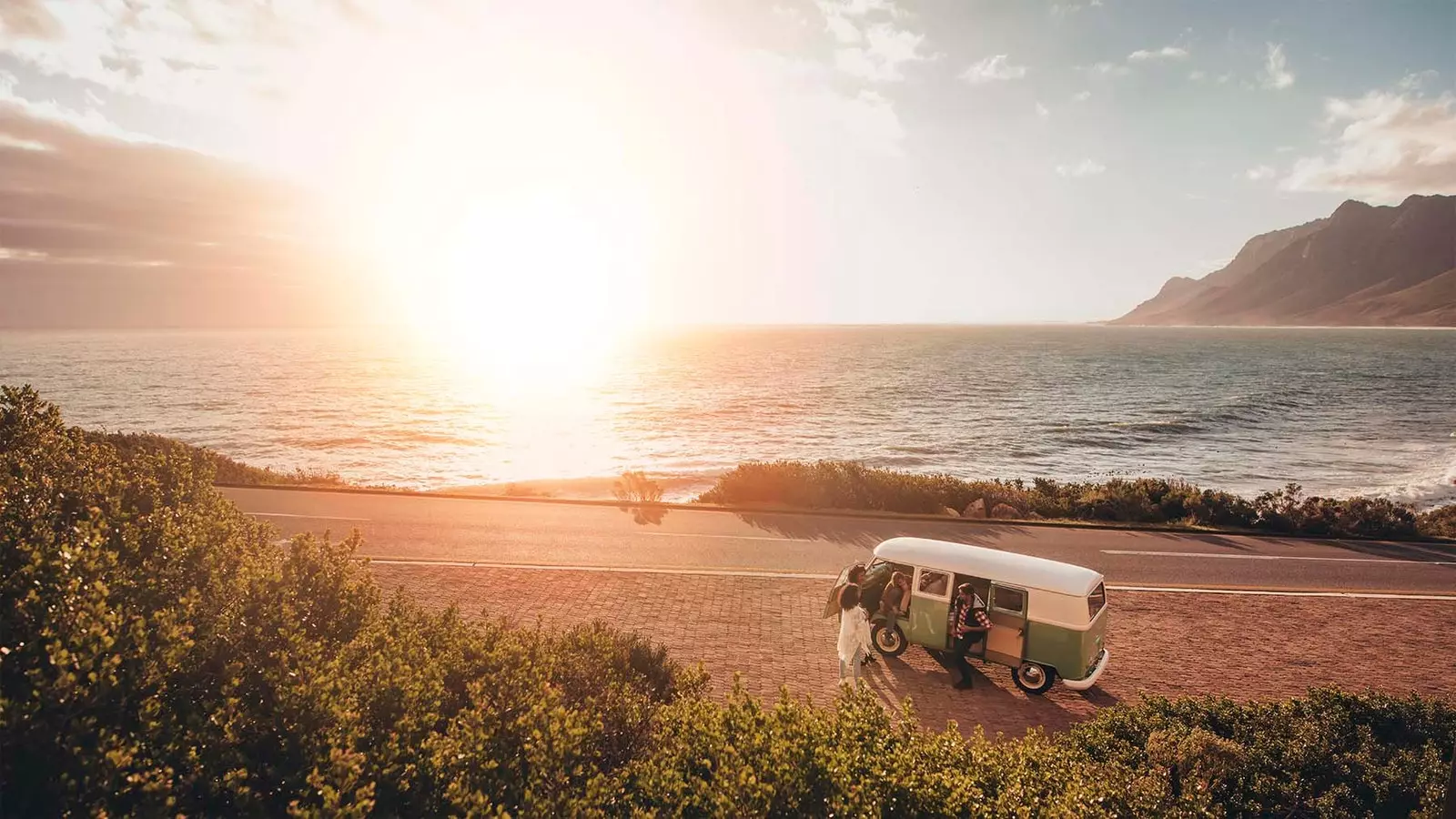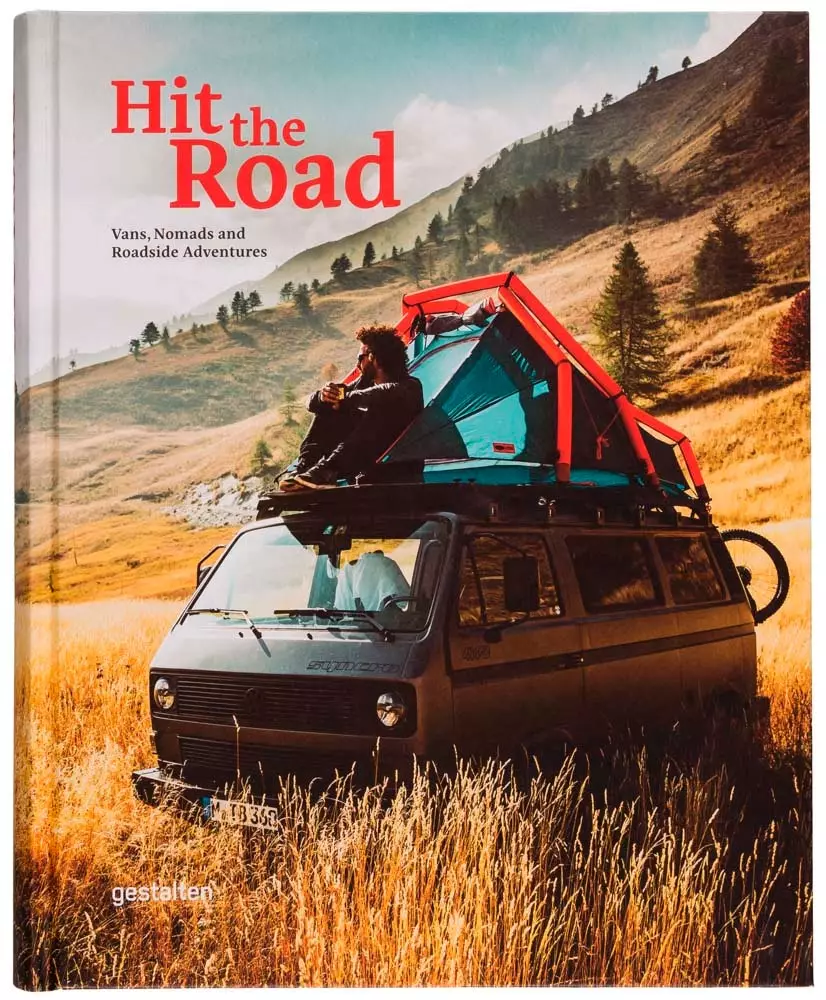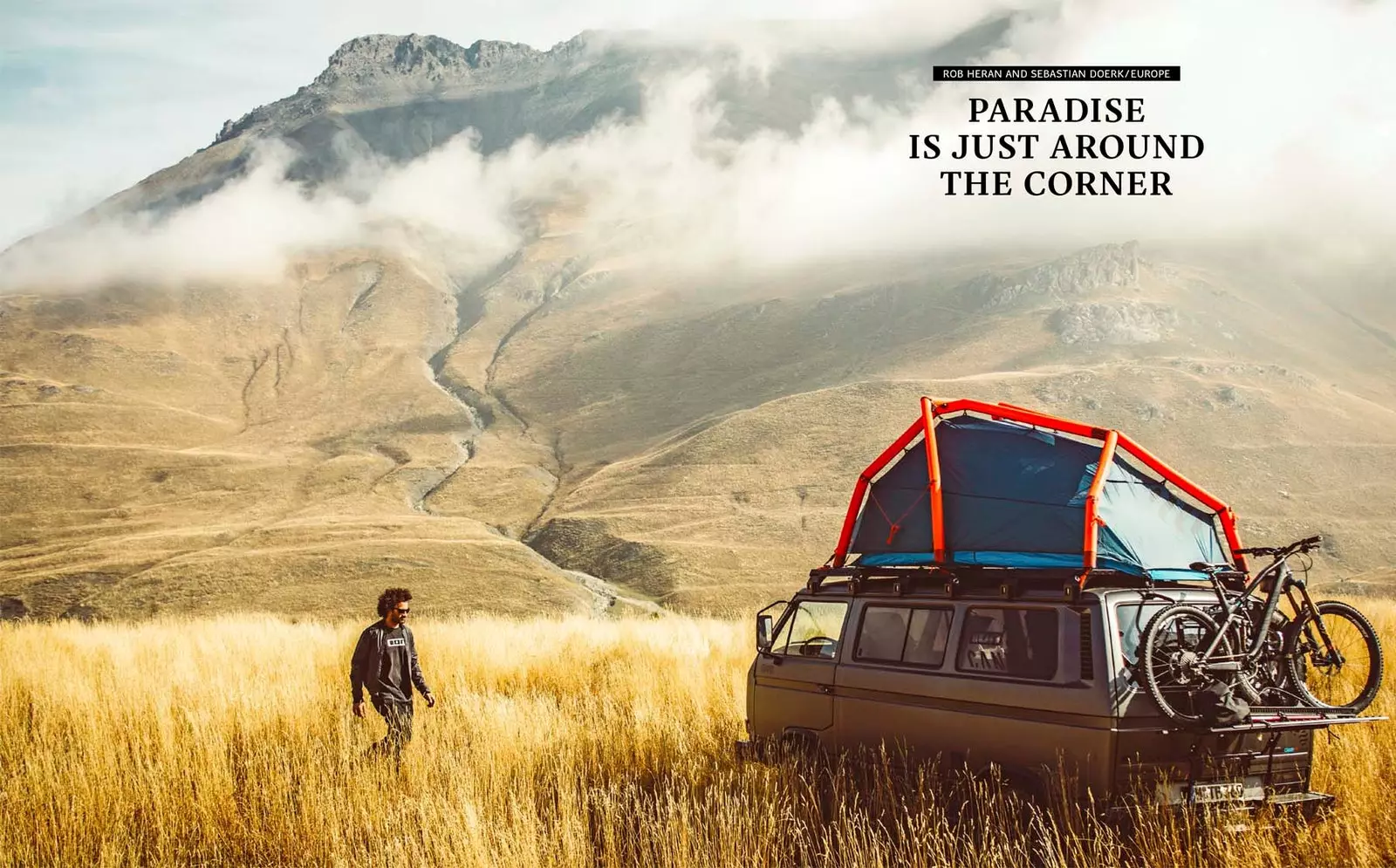
highway and blanket
"You continue like this, that in the end you will finish living in a van ", our parents threatened us when we were little. But it turns out that oh, millennial miracle: if we pay attention to the label #vanlife on Instagram (which returns more than 2.6 million results), it seems now all we dream with doing it. Why has that old "road and blanket" ? How has living on four wheels become an inspirational concept and highly wanderlust ?
"Experiences on the road, in the wild, leave you lasting memories, unlike sedentary days or the things we consume. Conversations with different people they feed us See new places and Learn new things wake up our minds. And what is perhaps more important: fresh air and a more natural relationship with the planet in which we live are vital", they explain in Hit The Road: Vans, Nomads and Roadside Adventure s , the new -and beautiful- book by Gestalten.
In it, the protagonists are young people from all over the world who have decided live on the road "because they had a dream, or because they had had enough " of the 'standard' existence. This is the case, for example, of Richard and Ashley Giordano , that, after studying a degree, getting married and buying a flat, that is, after doing everything what society expected of them, they realized that they were unhappy, that they were caught up in a life that did not fulfill them. Your answer? Continue working another five months to get more money, sell everything they had and start driving. Today they carry five years touring the American continent. And they don't regret it.

Pure inspiration
Texan artist Amanda Sandlin, however, did it to face her fear: She was recovering so much from end of a relationship like the death of his grandfather And she felt there was nowhere she could call home, so she thought a period of introspection would do her good. That was how she found herself boarding a van, face to face with the loneliness that she had feared so much until then. "It took me pretty much the whole trip to understand that it's okay for me to feel…however I feel. Instead of judge my emotions I let them be. As a consequence, his force on me was decreasing ", she recalls.
Paul Nitzschke , for his part, is a Berliner who followed a similar path to the Giordanos, in order to live by his mantra: "Unknown countries and their beauty: that is my definition of happiness ", he states in the book. It was also in 2013 when he left with his girlfriend Christine in a van that cost them 1,500 euros ; set it up supposed €3,500 plus. "I want to live my life to the fullest and be proud her", affirms the adventurer, who assures that his ideal existence goes through tour countries and meeting people you might never have run into otherwise. "This is my dream, and anyone can have this life ", he assures.

"You will find paradise around the corner"
A NEW VITAL STAGE
the psychologist jara perez she agrees that this existence is now accessible for everyone: "I think that nowadays it is easier to aspire to this kind of life for a while. The possibility of having a van with which to move around the world has become real thanks to the possibility, also, of ask for a loan to buy it. What used to be a long-term way of life has now become something you can do temporarily. It can be a game of a couple of years: you sell the van and you go back to your old routine ", she explains.
Ken Ilgunas , one of the pioneers of this movement, believes that there is a whole subculture, that does nothing but grow, of people looking for get out of the formula "education, debt, job, family, home, more debt, and a lot of material possessions." "This way of living does not leave much time for adventures or for yourself, so there are those who are looking for imaginative ways to subvert it. The subculture I am talking about is attracted to life in the countryside , for having small houses or move into a vehicle . On many occasions, by reducing our expenses we can live a richer life ", the North American affirms to Traveler.
In his case, he lived in a van from 2009 to 2011 with the aim of finishing university free of debt, a reality that grips the future of american students, and, little by little, also from ** the Spaniards.** Later, he devoted himself to walk North America, and on both experiences he has written three books.
Right now, Ilgunas has four months crossing Europe hitchhiking and boarding trains, planes, and buses, and claims to feel more energetic and more creative never. The possibility of spending so much time traveling also stems from the philosophy that he acquired while he was studying, and that he still maintains: "Thanks to the fact that I have a simple life, without debts and with hardly any bills, I can be more creative. I have plenty of time to write, learn to play an instrument, read, watch movies, and listen to podcasts, all of which help me be a well-informed citizen. I also have enough hours to think and nine hours a day to sleep . Mind you, I don't own too much (I could keep all my belongings in my honda civic ), but I have freedom and time".
However, the author believes, like Pérez, that living this way is not something necessarily forever : "I have had many experiences, and they are very valuable to me; it makes me happy to have gone through that stage, but I still I have many left to live", he tells us. And in those that come, he would not mind having a roof over your head under which to continue writing.
LIVE FROM THE #VANLIFE
Back in the dawn of Instagram, Foster Huntington she left his job in New York as a designer for Ralph Lauren and moved into a 1987 Volkswagen Syncro. His days then became a succession of waves to surf and landscapes to discover: he soon accumulated more than one million followers, thereby becoming one of the first instagrammers of the world. And making the hashtag fashionable #vanlife.
However, when The New Yorker approached him recently to do a **report** on the phenomenon, Huntington commented with some scandal: "Now there are professional vanlifers" , alluding to those who have turned their trips into a product to be paid for. One of the best examples of this is Emily King and Corey Smith , a couple that was precisely Huntington - who has already written ** two books ** about life on the road - who pushed to embark on the adventure on wheels
"Almost all popular accounts of this type belong to young, attractive, white, straight couples ", they point out in The New Yorker, to which Smith replies: "There is the pretty girl and the guy with the look of a lumberjack; that is what people want to see ". "They want to see emily in bikini, they want to see the sun reflecting off the lens, they want to see the van. If I do one of Emily in the van waking up with penny -his dog of hers-, we hit him", he says. After all, as he himself admits," she is a naked woman ". And he explains that, if he accompanies her in the image of her, the "likes" go down exponentially.
"It looks like they're having a good time, but actually they work a lot ", Huntington points out about the day to day of King and Smith. In fact, they can spend hours trying to capture ** the perfect moment **, the one that will make their 175,000 followers sigh of inspiration... and that, finally, will report to the couple the likes that finance their trips through the product sponsorship . Thus, according to The New Yorker, in 2016 -the first year in which Instagram became their main livelihood-, King and Smith managed $18,000, while in the first two months of 2017, they had already raised more than 10,000.
ADVANTAGES AND DISADVANTAGES OF BEING A VANLIFER
It seems that what the #vanlife is about, finally, is to turn some complicated circumstances -unstable jobs, unhappy lives ruled by consumerism , gigantic debts - in a romantic postcard. After all, better that than settle for an existence that not what we expected.
"The freedom and minimalism seem to be the first words spoken by those who lead this life, and they share the feeling that by consumerism and competition it lacks fundamental qualities for real human progress," reads the Gestalten book. "If the vanlifers are the new Lost Generation, perhaps it is because the younger you are, the more work you are expected to do for less money , a job to which, moreover, it seems that every time makes less sense ".
However, despite being a very juicy alternative to common existence, there are not a few who are lately bringing to light "the other face" of this kind of life. Thus, Max and Susagna, founders of the travel blog with children Families on the Road , reveal in a post " what no one tells you about traveling in a camper van," namely: that They don't have a bathroom that the smells derivatives of cooking end up flooding everything, which cannot be Park wherever you want without facing fines, which are not well insulated thermally and that have little space.
Indeed, King and Smith themselves acknowledge that is not easy share such a small handful of square meters day after day, although perhaps the most notorious case of "cons" in recent times is that of Felix Starck and Mogli. This German couple had to **sell the school bus** they had customized to cross America just a few months earlier, and they weren't afraid to **expose all the hardships** they encountered along the way: lack of experience when customizing the car, visa problems , faults in the air conditioning of the bus, obstacles at the time of cross borders , his dog's illness...
Yet isn't life complicated everywhere? As Jara Pérez points out, there are smaller flats in Madrid than many caravans, so sharing a tight space is not something that only affects vanlifers: "It depends on whether it is pleasure or need , it depends on the point of the trip where the couple is, it depends on the relationship they have and from the moment in which it is the same...", points out the expert. "Not having a own space can greatly affect coexistence, but if we take into account that, depending on where we stop the van, all outer space that we want can be used, it does not necessarily have to be something uncomfortable".
Likewise, for the adventure to develop in the best possible way, the professional points out that it is important to have the adaptability to diverse situations, and being in a moment of life conducive to undertake this type of trip: "Doing it at 20 is not the same as doing it at 50", she acknowledges. Despite everything, if we are the ones who have chosen to live on four wheels, we already have much to gain : "When you dare to do something that society admires but that ** not everyone has the courage ** to carry out, you can have a feeling of freedom and strength, and perhaps, if the type of life fits your expectations, a feeling of triumph Perez explains.
"All this depends, of course, on our conditions economic, relational, emotional, etc. But probably the main benefit of this kind of life is to be able to value things that in other conditions we would not value. For example, the possibility of being in a different place every day or being close to the nature ", she concludes.
